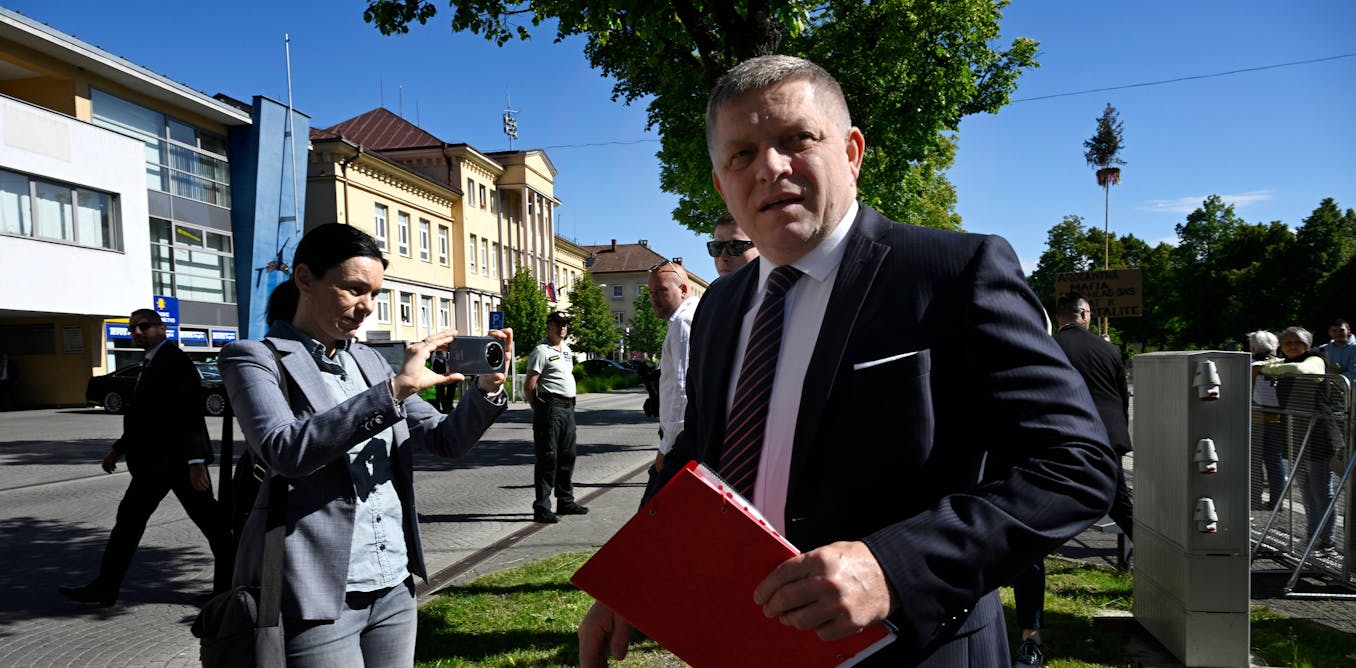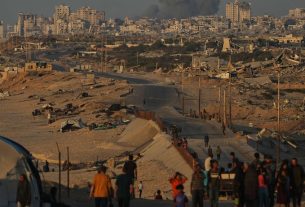Slovakian prime minister Robert Fico remains in a serious condition after an assassination attempt on May 15. He was shot multiple times at close range after coming out of a meeting at a cultural centre in the town of Handlová. A man has been arrested and charged with attempted murder.
The 59-year-old Fico has been in office since October 2023, but also served two previous terms as prime minister, from 2006 to 2010 and from 2012 to 2018. He founded the Direction–Social Democracy (Smer–SD) party in 1999, and has led that party since its foundation. His political positions have been described as populist.
Many European countries these days are seriously politically divided, are suffering from populism, the use of fake news and hate speech. Slovakia is very negatively affected by these influences, with its rural population particularly at risk. A recent survey suggested only a minority of the Slovak population agree that Russia is to blame for the war. A large number of Slovaks also believe the COVID pandemic was a scam and that vaccines cause death.
Fico led his party Smer to a landslide election victory in 2012. But by March 2018, a political crisis had engulfed his government following the murder of journalist Ján Kuciak and his girlfriend. Kuciak had been investigating corruption in the highest circles in Slovak politics, and potential links between Slovakian politicians and the Italian ‘Ndrangheta mafia clan.
Although nothing concrete was found against Fico personally, his handling of the situation caused his coalition partners to withdraw from government and he was forced to resign. In 2022, Fico was charged with organised crime offences but his immunity as a member of parliament saved him from arrest. Fico denied the charges and blamed “criminal structures” in the police for the accusations against him.
A pro-western government took over but its perceived incompetence in handling the COVID pandemic meant that it lost again to Fico in October 2023. Ahead of his election that year, Fico vowed to end military support for Ukraine. And since returning to office, the Fico government has refused to join a Czech-led coalition of about 20 states in procuring military aid for Ukraine.
Relations with the European Union have been tense in this sense, too. Fico has criticised Brussels’ policies on supporting Ukraine, and backed Hungary in its attempts to block an EU aid package for the war effort. He has, however, more recently softened his stance and has insisted he will not block Ukraine’s application to become an EU member state.
Alamy/AP/ Jan Kroslák
Fico’s recent domestic policies have been divisive, leading to protests in the streets just weeks before the attempt on his life. An ongoing controversy over Fico’s attempts to crack down on media freedom have triggered demonstrations in Slovakia’s capital, Bratislava.
All this considered, however, an assassination attempt has been made against an elected leader of a European country. Slovakia’s president, Zuzana Čaputová, has called for calm and urged the public not to leap to conclusions about the motive for the attack. In a short speech, she said the incident is not only an attack on a person but also on democracy itself. Campaigning for the impending European elections has been suspended. The Slovak situation is now extremely dangerous, and cool heads are needed to avoid an escalation of tension.



